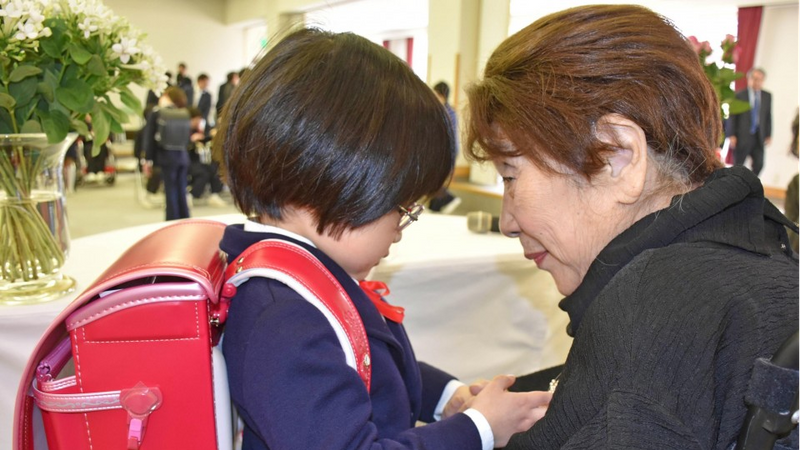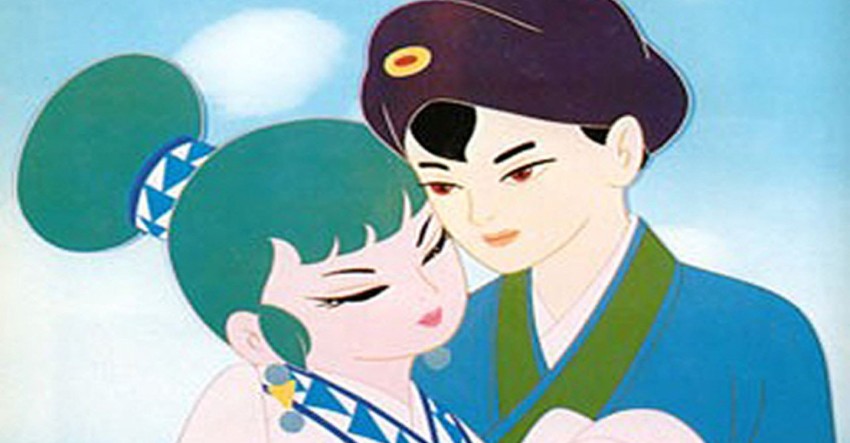Mariko Miyagi (1927-2020)
March 23, 2020 · 0 comments
 Mariko Miyagi, who died on Saturday from malignant lymphoma, supposedly left her acting career behind in the 1980s, but remained prominent in the public eye for many further decades. A teenage vaudeville performer in the dying days of the Second World War, she swiftly rose to media stardom in the post-war era, initially as the singer of the Occupation-era toe-tapper “Nayamashi Boogie.” By 1956, she was playing the title character in Tenten Girl, one of the early TV drama hits, based on a manga by Shosuke Kurakane. In the days before video tape, she would finish her theatre performance and rush to the studio, changing costumes en route, ready to rush in front of the cameras. The samurai-era comedy-musical would also get two short movie adaptations in 1956, bringing Miyagi to the notice of the Toei studio.
Mariko Miyagi, who died on Saturday from malignant lymphoma, supposedly left her acting career behind in the 1980s, but remained prominent in the public eye for many further decades. A teenage vaudeville performer in the dying days of the Second World War, she swiftly rose to media stardom in the post-war era, initially as the singer of the Occupation-era toe-tapper “Nayamashi Boogie.” By 1956, she was playing the title character in Tenten Girl, one of the early TV drama hits, based on a manga by Shosuke Kurakane. In the days before video tape, she would finish her theatre performance and rush to the studio, changing costumes en route, ready to rush in front of the cameras. The samurai-era comedy-musical would also get two short movie adaptations in 1956, bringing Miyagi to the notice of the Toei studio.
Thanks to her singing voice and star appeal, Miyagi was selected to play Bai-Niang, the heroine in Toei’s animated feature White Snake Enchantress (1958, Hakujaden). This inadvertently made her one of the most prominent and influential voice actresses in the era of early anime, and the first anime pin-up.
“It was like being in love,” wrote one fan, Hayao Miyazaki, decades later, “and Bai-Niang became a surrogate girlfriend for me at a time when I had none… I was hooked when I saw Hakujaden, and I wound up choosing to become an animator because of it.”
 But White Snake Enchantress was merely one more job for Miyagi. Although the studio made much of its use of live-reference and rotoscoping, she was not one of the three actresses who later expressed their bafflement at repeated filming experiments in which they were made to dress up in Chinese period costume and then have water thrown at them on a rickety boat. I have long suspected that the entire enterprise was staged for the media, or worse, an excuse for the backstage equivalent of a wet T-shirt competition.
But White Snake Enchantress was merely one more job for Miyagi. Although the studio made much of its use of live-reference and rotoscoping, she was not one of the three actresses who later expressed their bafflement at repeated filming experiments in which they were made to dress up in Chinese period costume and then have water thrown at them on a rickety boat. I have long suspected that the entire enterprise was staged for the media, or worse, an excuse for the backstage equivalent of a wet T-shirt competition.
Spared such indignities, Miyagi was already on to her next role, Temptation on Gurama Island (1959). Her singing career continued, albeit slowly eroded by the onrush of pop music, but her easy listening hits included the “Happy Song”, and a Japanese cover of “Do-re-mi” from the Sound of Music. She lent her voice to several subsequent Toei productions, playing a talking dolphin in Andersen Tales: The Little Mermaid (1975) and a role in Thumbelina (1978). She also appeared in a live-action adaptation of Keiji Nakazawa’s Hiroshima manga Barefoot Gen, playing Kimie Nakaoka in Barefoot Gen: Explosion of Tears (1977).
However, by the 1970s, Miyagi had largely left acting behind, investing much of her time and money in establishing and running Nemunoki, a home and, ultimately, community for disabled children. She remained in the public eye for much of the 20th century, thanks to appearances in pledge drives and telethons, as well as writing, producing and directing several documentaries about the charity. In a call-back to her anime connections, the story of her involvement with the home would itself become the subject of Yuzo Ishida’s animated TV special, A Little Love Letter: Mariko and the Children of Nemunoki (1981). The anime was notable for featuring highly realistic character designs based on real staff at the facility, drawn by Noboru Ishiguro.
She lost her life companion, the author Junnosuke Yoshiyuki, to cancer in 1994, and in the 21st century suffered a number of setbacks. Most prominent among these was her discovery that a prominent member of staff at Nemunoki had conducted a prolonged embezzlement of charity funds, leading to a court case over a missing half-billion yen. In 2012, she was awarded the Order of the Sacred Treasure by the Japanese Emperor, an occasion which she marked by giving her first concert in three decades. She died on her birthday, 21st March 2020.
Leave a Reply